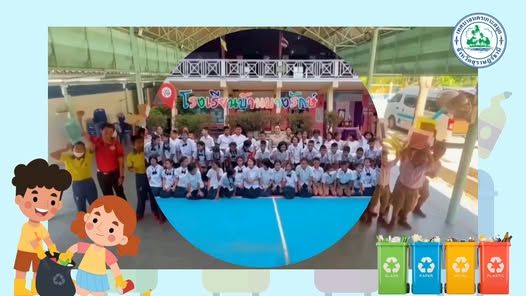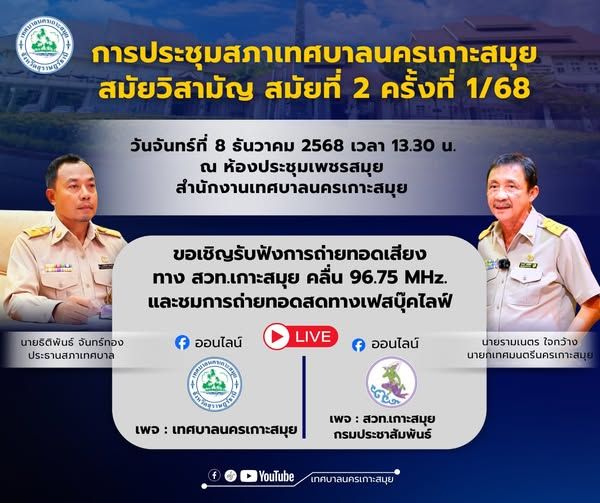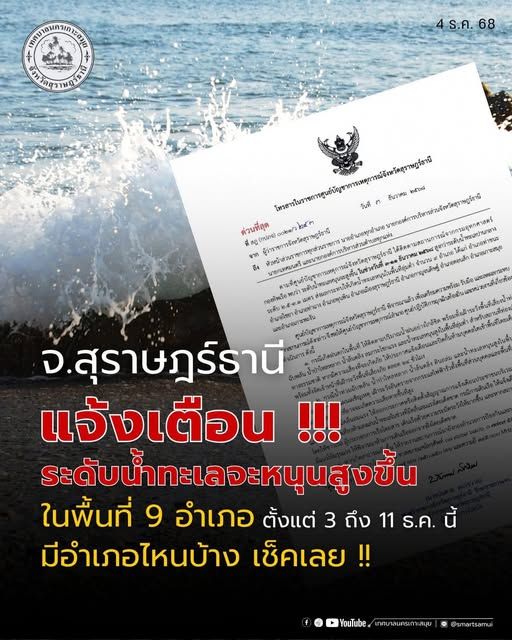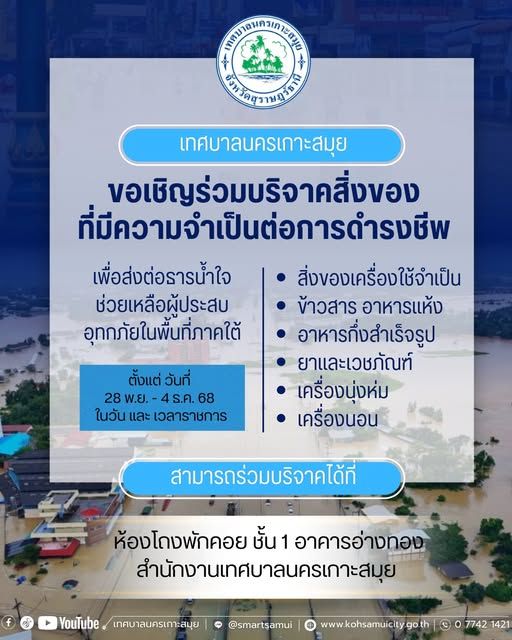Koh Samui Municipality is empowering local students with an innovative 6-day waste separation training program in Bo Phut, transforming young learners into environmental champions. Through immersive education, these students are learning to properly sort biodegradable, recyclable, and hazardous waste, paving the way for a greener and cleaner future.
KohSamui #SustainableEducation #EnvironmentalChampions #WasteSeparation #GreenFuture #ThailandTravel #EcoLearning #SustainableTourism #YouthEmpowerment #CleanEnvironment
Efforts to promote sustainable waste management practices have taken a significant step forward in Bo Phut Subdistrict, Koh Samui. A comprehensive, hands-on training activity focusing on waste separation was recently organized for local students as part of the Community Waste Separation Promotion Project and Source Wastewater Management initiative. This event, conducted on the scenic island of Koh Samui, underscores a growing commitment to environmental stewardship among young learners.
Objectives of the Training Activity
The primary objective of the hands-on training was to foster knowledge and understanding of proper waste separation practices among students. The training aimed to:
- Equip students with practical skills to identify and separate different types of waste.
- Raise awareness about the environmental impact of waste and wastewater.
- Encourage students to become role models for responsible waste management within their schools.
- Motivate students to apply what they learn at home, thereby creating a ripple effect in the wider community.
Structure and Schedule of the Event
The training activity was held between the 4th and 9th of June, 2025, and was organized into six separate batches to accommodate a large number of participants while ensuring interactive learning. Each batch provided a focused environment where students could engage with the training content in depth.
- Duration: 6 days
- Location: Bo Phut Subdistrict, Koh Samui Municipality
- Participants: School-aged children from local institutions, supported by teachers and municipal staff
Key Training Components
1. Classification of Waste Types
Students received instruction and practical experience in identifying and categorizing common types of waste found in households and schools. The main categories covered included:
- Biodegradable Waste: Food scraps, garden waste, and other organic materials suitable for composting.
- Recyclable Waste: Paper, plastics, glass, and metals that can be diverted from landfills through recycling processes.
- Hazardous Waste: Batteries, chemicals, and electronic waste that require special handling and disposal methods.
- General Waste: Other non-recyclable, non-hazardous items that must be sent to landfill.
2. Demonstrations and Hands-On Activities
To reinforce theoretical knowledge, the training incorporated interactive demonstrations and group activities. Students participated in:
- Sorting exercises using real-life waste materials.
- Discussions on the environmental consequences of improper waste disposal.
- Creative projects such as building simple compost bins and upcycling common household items.
3. Source Wastewater Management
A segment of the program was dedicated to the importance of managing wastewater at its source. Students learned about:
- The connection between waste separation and clean water systems.
- Simple methods to reduce water pollution in households and schools.
- The role of wastewater management in preventing disease and protecting local ecosystems.
Role of Supporting Departments and Community Involvement
The training was a collaborative effort involving several departments under Koh Samui Municipality, including the Sanitation Department, Sanitation Engineering Department, and the Public Health and Environment Department. These agencies provided:
- Educational materials and technical guidance.
- Personnel to facilitate activities and mentor students.
- Ongoing support for the implementation of waste separation practices in the community.
Moreover, teachers and community leaders were encouraged to reinforce the lessons learned during training, ensuring a sustainable impact beyond the classroom.
Long-Term Impact and Future Directions
By targeting school-aged children, the initiative aims to create a generation of environmentally conscious citizens who will champion waste separation in their homes, schools, and communities. Students are encouraged to share their knowledge with their families, thus amplifying the project’s reach and effectiveness. The municipality plans to monitor the progress of waste management practices in Bo Phut and expand similar programs to other subdistricts on Koh Samui in the future.
Frequently Asked Questions
FAQ: Hands-On Waste Separation Training in Bo Phut
What are the main objectives of the waste separation training for students in Bo Phut?
The primary goals of the training are to equip local students with practical skills in identifying and separating different types of waste, raise their awareness about the environmental impact of waste and wastewater, and encourage them to act as role models for responsible waste management. The program also aims to motivate students to apply their new knowledge at home, helping to create a ripple effect that benefits the wider community.
How is the training structured and what activities do students participate in?
The 6-day training is organized into six separate batches for interactive and focused learning. Students engage in hands-on activities such as waste sorting exercises, group discussions about environmental impacts, and creative projects like compost bin construction and upcycling. The training also covers source wastewater management, teaching practical methods for reducing water pollution and understanding the link between waste separation and clean water systems.
Who supports this initiative and what is the expected long-term impact?
The program is supported by multiple Koh Samui Municipality departments, including the Sanitation, Sanitation Engineering, and Public Health and Environment Departments, along with teachers and community leaders. The long-term impact aims to foster a generation of environmentally conscious citizens who promote proper waste separation in their homes and communities. The municipality plans to monitor progress and expand the initiative to other subdistricts, ensuring a lasting and sustainable influence on waste management practices across Koh Samui.




